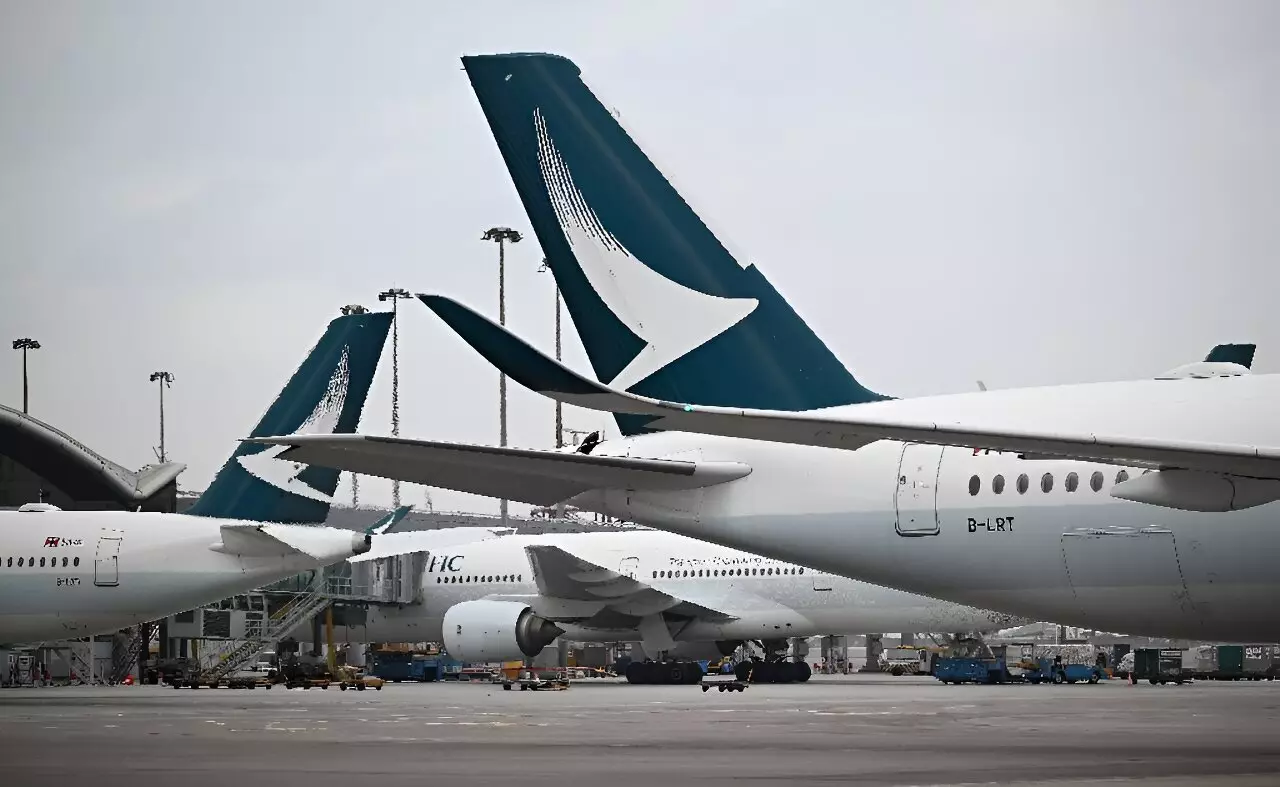Cathay Pacific, a major operator of Airbus A350 jetliners, recently grounded 48 planes for inspections after a Zurich-bound flight experienced technical issues shortly after take-off. The airline identified defective engine fuel lines on 15 of the A350 planes, all equipped with Rolls-Royce engines, which needed to be replaced to ensure safety and airworthiness.
In response to the engine fuel line problem, Cathay Pacific initiated repairs on the affected aircraft, with six planes already cleared to resume operations. The remaining nine aircraft are expected to be repaired and back in service by Saturday. This proactive approach by the airline demonstrates a commitment to passenger safety and operational efficiency.
The grounding of the A350 fleet led to the cancellation of 90 flights, mainly on regional routes to destinations such as Singapore, Taipei, Tokyo, and Bangkok. Passengers expressed concerns about the safety of the aircraft, with some feeling uneasy about the lack of communication regarding the maintenance checks. Improved communication and transparency from airlines are essential in reassuring passengers and maintaining trust.
Following Cathay Pacific’s actions, other airlines in the region also conducted checks on their A350-900 and A350-1000 models to ensure the integrity of the engine fuel lines. Japan Airlines confirmed that their A350 jets showed no issues, while Thai Airways and Singapore Airlines reported normal operations with no impact on their A350 fleets. It is encouraging to see proactive measures being taken across the aviation industry to address potential safety concerns.
Air France, which operates A350-900 models, stated that they were in contact with Airbus and Rolls-Royce regarding the situation but had not been advised to conduct checks. Similarly, Qatar Airways, the world’s largest operator of A350-1000 aircraft, reported no operational impact and emphasized the importance of ongoing monitoring and collaboration with manufacturers to address any issues promptly.
Aviation experts, such as Terence Fan from Singapore Management University, highlighted the critical importance of addressing defective engine components to ensure proper fuel flow. Mechanical issues, especially those related to engine performance, pose significant risks during flight and must be promptly addressed through part replacements and rigorous inspections. Any widespread mechanical problems can have serious implications for fleet operations and passenger safety.
The incident involving Cathay Pacific’s A350 fleet serves as a reminder of the complexities and challenges faced by the aviation industry in ensuring the airworthiness of aircraft. Timely maintenance, effective communication, and collaboration between airlines, manufacturers, and regulatory authorities are crucial in preventing and addressing technical issues that may compromise flight safety. Continuous improvements in aircraft design and engine durability are essential for the long-term sustainability of air travel.
Cathay Pacific’s resumption of full operations following the replacement of defective engine fuel lines on its A350 planes reflects a commitment to safety and reliability. The incident underscores the importance of proactive maintenance, regulatory oversight, and industry-wide cooperation in addressing technical issues to ensure the safe operation of commercial aircraft.



Leave a Reply